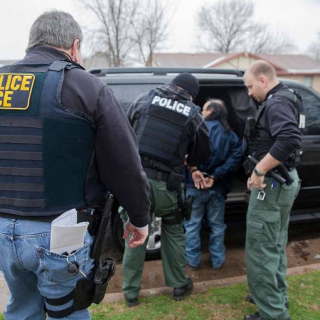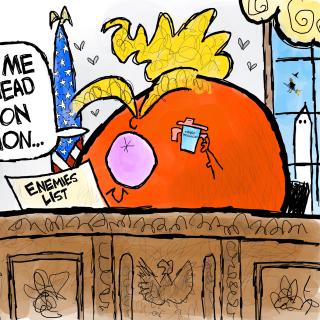Advertisement
At the end of January, the investigation into Donald Trump’s presidential campaign and their potential ties to Russia seemed to focus around one person – Roger Stone. This developed into a weekend news cycle around Stone that prompted some people to ask, “who is Roger Stone?”
Indeed, for normal folks who don’t have an obsession with politics or 2016, Roger Stone is not a name they would know unless they saw the Netflix documentary Get Me Roger Stone. Despite Stone’s reputation of being a dirty trickster and controversial provocateur who can build or destroy political careers on a local or national level, most of the country didn’t know any of that until January 25.
Heck, even the pre-dawn raid on Stone’s house and the ensuing indictments by the FBI didn’t give much insight into who Stone was as a person, instead eliciting the usual knee-jerk reactions from the only two sides left in the Trump political era. People who hate Trump cheered for the charges against Stone and Trump’s defenders painted them as the pointless culminations of a two-year witch hunt. Steve Martin did an awful impression of Stone on Saturday Night Live, impersonating him as a befuddled, bumbling New York mob-type, showcasing even more inaccurate perceptions of a man most people had never heard of before.
That’s not to say I know who Roger Stone is either, despite the fact that I’ve known him personally for several years. I first met Roger in 2012, when he came to see me do a comedy show in New York City with some mutual libertarian friends. When I talked to him afterwards at a party on his Upper East Side rooftop, I thought he was just some old man running shitty jokes on me. It was only in the weeks that followed – as I took on the job of doing videos and communications for a Stone-run pro-Gary Johnson Super PAC – that I realized who he was and the reputation he had.
This was all well before 2016, at a time when Stone had publicly left the Republican Party and declared himself a Libertarian (and libertine). Stone agreed with Libertarians on several political issues, from protecting civil liberties to ending the drug war and legalizing pot. In hindsight, it was a seemingly simpler time for him, well before things took off with his longtime friend’s presidential campaign.
I hadn’t worked for Roger in a few years when I heard from him again in the summer of 2015, right before the first big Republican presidential debate. When I showed up to Roger’s apartment, I didn’t even know he had a horse in the GOP race until he told me he was working for Trump. It seemed fitting, especially since Trump had announced his bid earlier that summer and had railed against illegal immigration, read Senator Lindsey Graham’s personal phone number on TV and was beating every establishment politician in the polls.
Stone asked me to help him live tweet jokes during the debate while a Vice reporter joined us for the debacle. Some may recall that Trump set the tone of that debate (and the remainder of the primary) with his very first answer, saying that his past disparaging comments about women were only referring to “Rosie O’Donnell.”
After the Vice reporter left, Roger was quietly sitting and looking at his phone before I asked him what he thought of Trump’s performance. Stone looked up and said that Trump did “awful” and “terrible,” but that everyone on the Internet was saying he won. Roger didn’t get it. After only seeing him go through the frustrating Johnson campaign in 2012, it was the first time I saw Roger surprised by his own political creation.
Of course, Roger famously quit the Trump campaign in the days following the debate, amid several accusations that he was fired. He denied any controversies and later came back to became one of Trump’s most ardent supporters, but not before the two old friends had publicly traded some clearly personal jabs.
Apparently, Trump didn’t like Roger trying to hog the spotlight and Roger didn’t like the beginning leadership team of Trump’s campaign. It’s odd, knowing what we know now, that these themes would eventually come back to find them again in January 2019, making the Trump political era come full circle.
Thanks to his involvement, Roger had once again found himself on the cover of every newspaper in the country while defying the establishment and praising his old pal. And no matter what happens next with the Mueller probe, understand that Roger is definitely loving all the attention.
Perhaps his old friend is as well, contemplating a pardon if need be. After all, as Roger has said, the only thing worse than being talked about is not being talked about.



